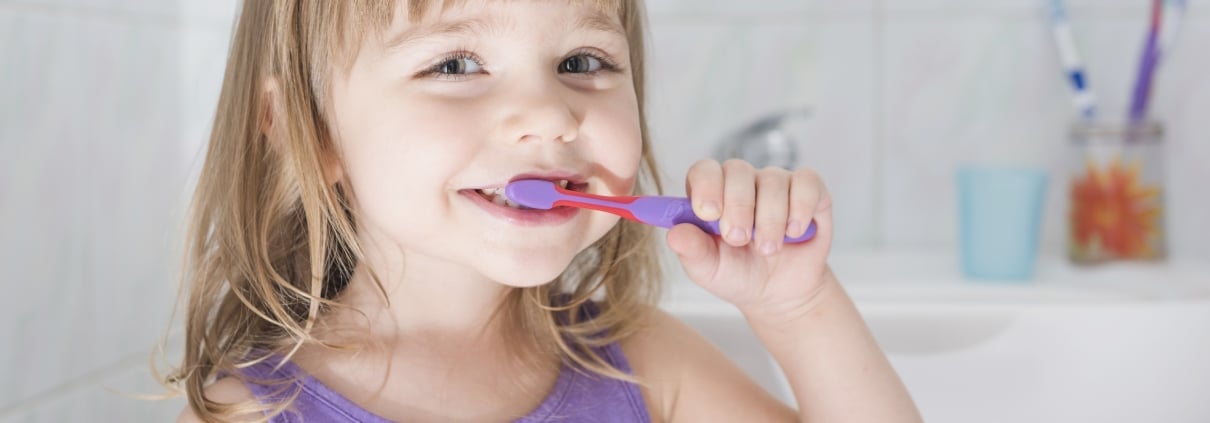Dental Hygiene from Preschool to Kindergarten: What Parents Need to Know
Since a healthy mouth is an integral part of a child’s overall health, parents need to teach their children how to properly care for their teeth. By establishing an at-home dental care routine and scheduling biannual visits to the dentist, parents are showing their children the importance of practicing good oral hygiene.
Oral Hygiene from Birth to 6 Months
Healthy habits now can prevent or reduce cavities later. Once their baby is done eating, parents need to clean their baby’s gums.
Wrap a clean, moistened washcloth around the end of the index finger and use it to gently massage the baby’s gum tissue.
Teething usually starts between 4 to 6 months. Cold temperatures help soothe the symptoms associated with teething therefore, parents can ease these symptoms by providing their infant with a clean, refrigerated teething ring (not frozen) or a clean, cold wet washcloth.
Dental decay is transmissible, as such, parents need to avoid holding the infant’s bottle or testing its temperature and cleaning the nipple (or pacifier) with their mouths. In addition, utensils should not be shared (e.g., spoons, etc.).
Mothers who breastfeed must also clean their infants’ mouths following feedings. Whether a baby is using a bottle or breastfeeding, once the baby’s teeth begin to erupt, night feedings should be discontinued.
6 to 12 Months
Once the first tooth erupts, in addition to massaging the child’s gum tissue, parents can begin brushing with plain water and a child-sized toothbrush that has soft bristles.
Parents should monitor the appearance of their child’s teeth and gum tissue. If brown or white spots develop, this could indicate decay. If these characteristics are present, parents should call 847-367-1133 to schedule an appointment with Dr. Nicholas Polito.
Unless a problem arises, children should have their first dental appointment before their first birthday or within six months of the first tooth’s eruption, whichever comes first.
From 12 Months to Kindergarten
Parents should brush their child’s teeth two times a day (just using plain water) and gently floss once.
Once their child reaches the age of 2, parents can begin using a pea-sized amount of fluoridated toothpaste, however, after brushing, make sure this toothpaste is spat out.
By the time a child reaches 2 ½, all his or her primary teeth should have erupted. At this point, parents can begin teaching their children how to brush and floss.
When children reach the age of 3, they should no longer be drinking a bottle, sucking their thumb or using a pacifier.
If a child is older than 3 and still sucks his or her thumb, drinks from a bottle or uses a pacifier, parents should speak with Dr. Polito, he will have some tips on ways they can help their child with breaking these habits. Also, parents who reside in an area where the drinking water is not fluoridated need to let Dr. Nicholas Polito at Dental Health and Beauty know. He may recommend a fluoride supplement.
By the time children turn 6 or 7, they can usually brush their teeth and floss without supervision. In addition to the biannual cleanings and exams the child has at Dental Health and Beauty, parents need to keep an eye out for cavities. To schedule an appointment with Dr. Nicholas Polito, call 847-367-1133 or click here. Dental Health and Beauty is located at 1109 West Park Avenue in Libertyville, Illinois.





Leave a Reply
Want to join the discussion?Feel free to contribute!